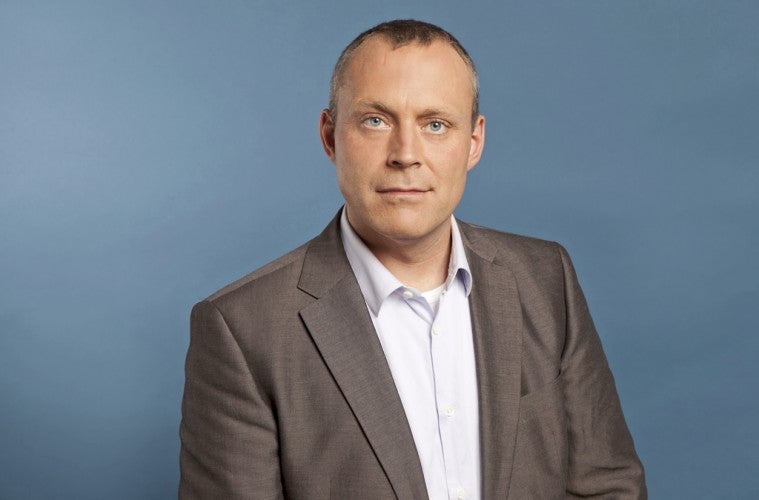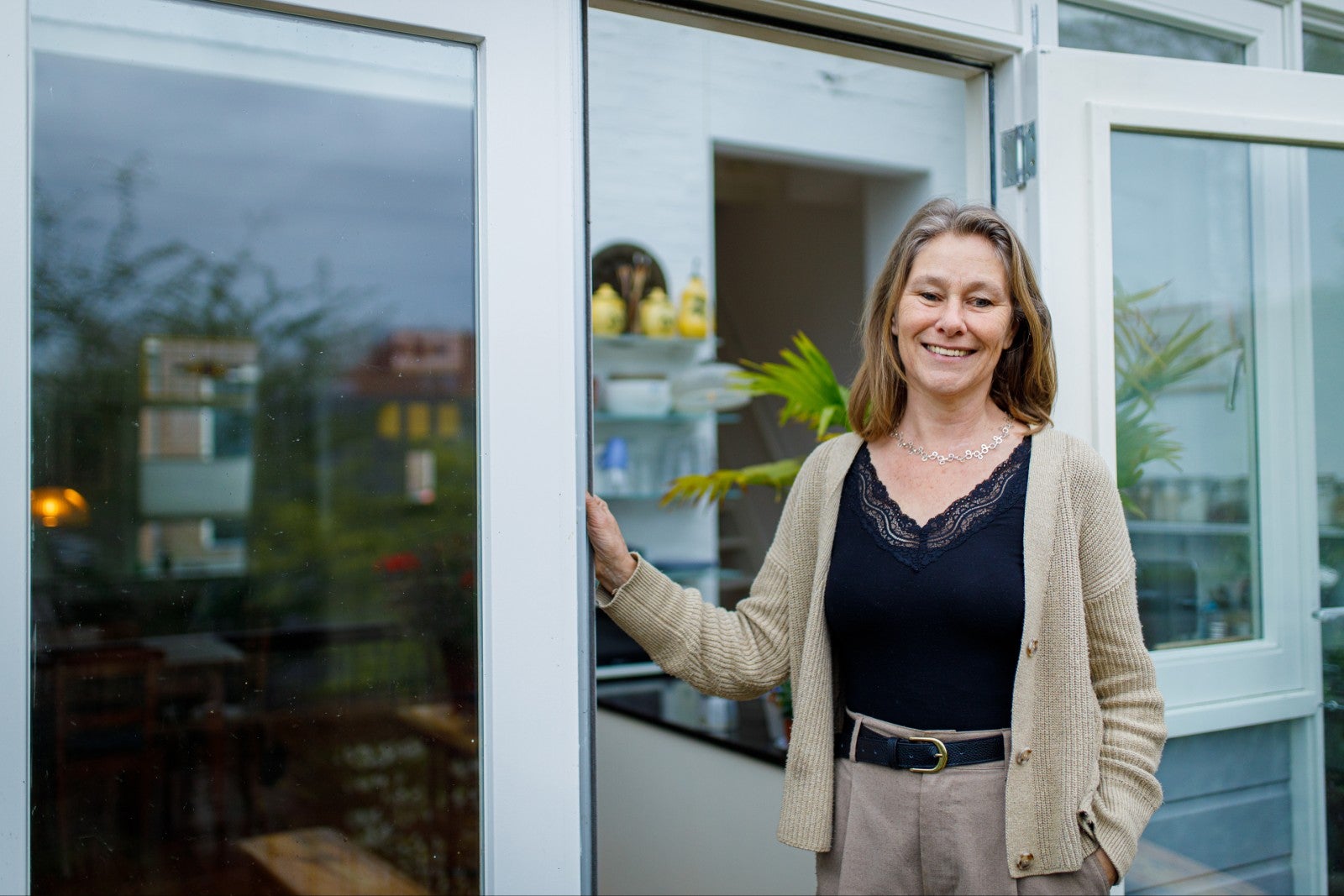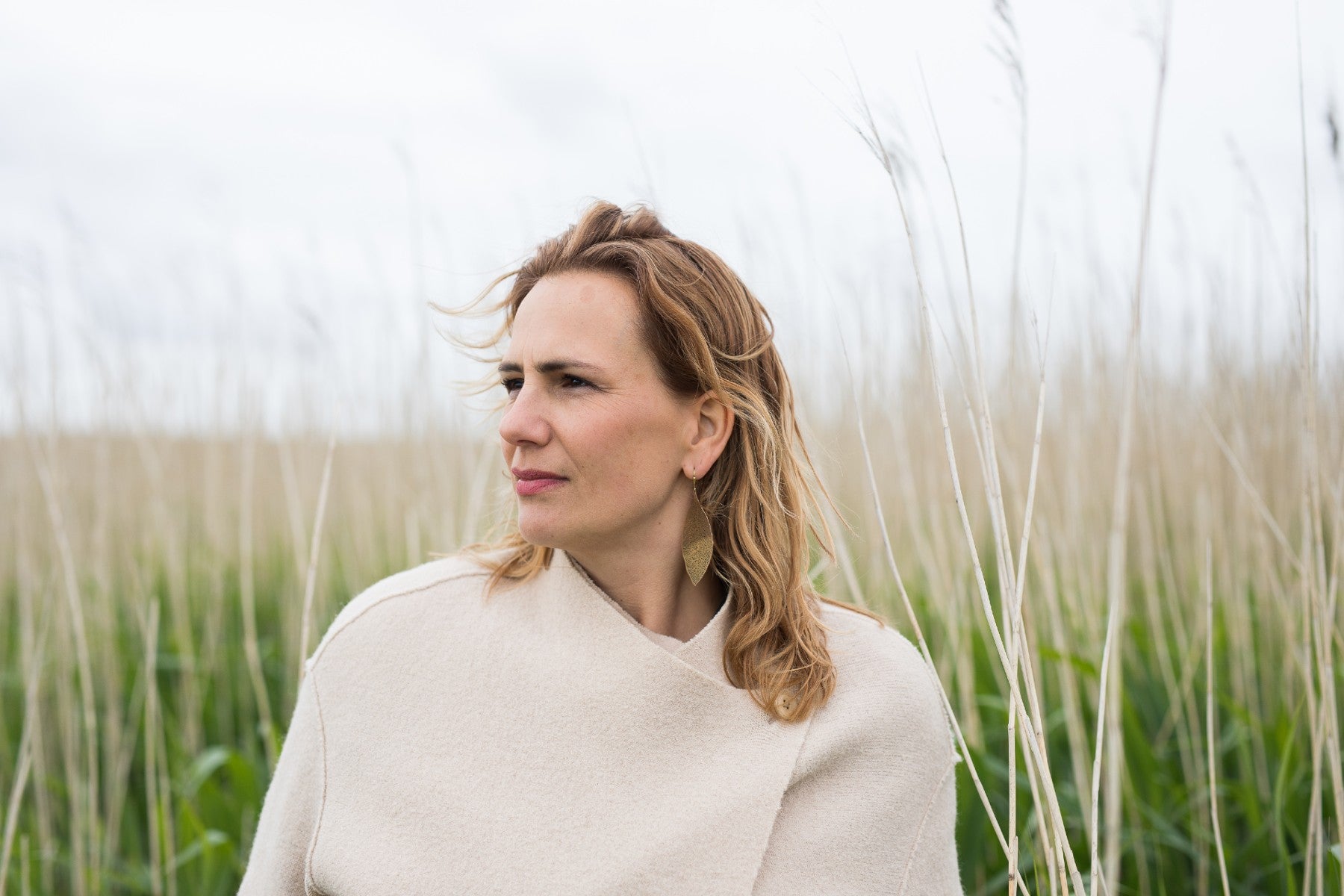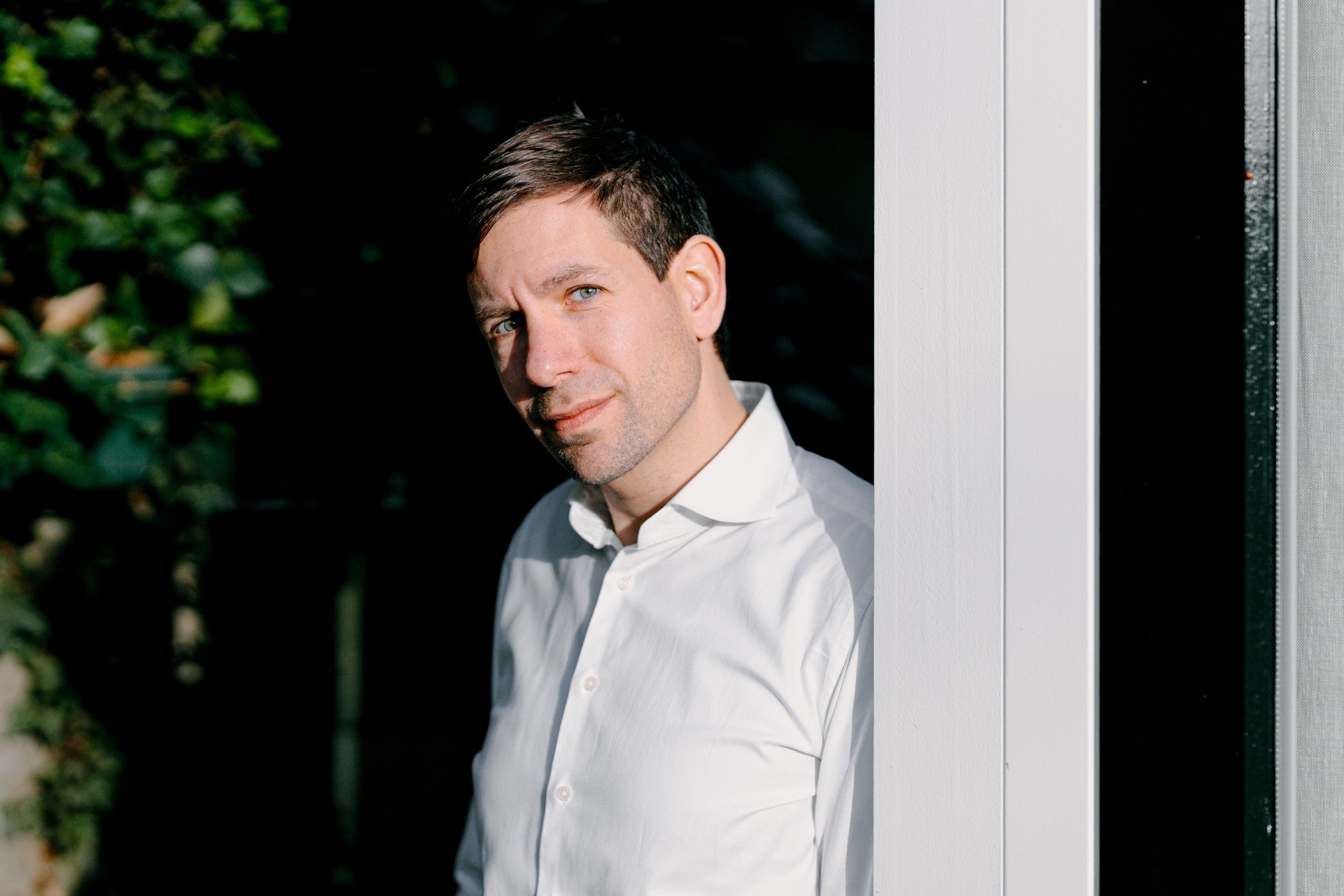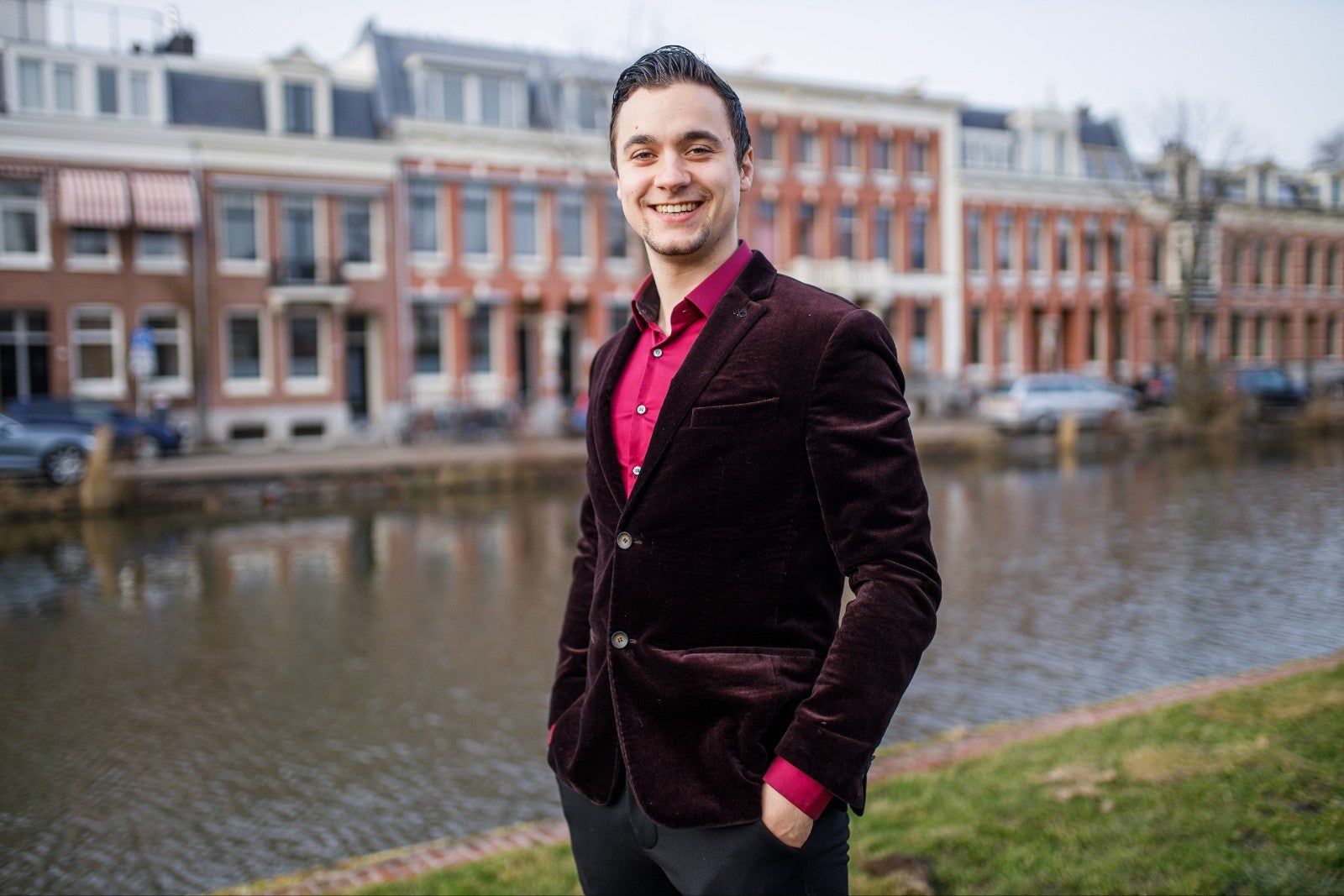Anyone who has seen the NOS news knows him: Sander van Hoorn keeps us informed about the war in Syria. He studied Political Science at the Vrije Universiteit, worked as a journalist and is adventurous and inventive. An excellent combination for a correspondent. He tells us about his work from Beirut.
How did you end up in the Middle East? “As a radio reporter for the NOS, I often made brief trips abroad: to New York after 9/11, the tsunami in 2004, earthquakes here and there. That was very challenging: quickly finding your way in an unfamiliar culture, sometimes with a language you don’t understand, and still producing reports. I enjoyed being a radio reporter in the Netherlands, but then there was an opening for a correspondent in Israel, and I was asked to apply. To my shock, and that of my girlfriend, I got the job.
We both decided to go. I really didn’t know what I was getting into, and that suits me fine. Working somewhere for a short time is a lot different from moving there temporarily. From applying for the work and residence permits, to arranging utilities and finding a school for your children. You have to build a new life in a country where you start off not even knowing the language.
When I moved from Israel to Lebanon, I was better prepared. Our two daughters, aged four and six, attend an international school and speak Dutch like foreigners, with the same grammatical errors.”
Your reports are clear and concise. Is that a gift, or did you learn that? “You have to be able to tell stories. But you can learn how to adapt the story to radio or TV. I found it difficult to make the switch from radio to TV. With the radio, you can’t have any ‘dead air’; now that I work in TV it’s difficult to take a moment to let the images do the work. TV forces you to ask what the core of your story is, because you don’t have much room for text. It’s a terrible medium for the transfer of information: it’s as if I’ve read an entire book, only to communicate the blurb on the cover. On the other side, it has a very high impact: the images let you empathise with the people you see.”
‘I always have a healthy dose of scepticism and a nose for hidden agendas’
How do you report on something as complex and dynamic as the war in Syria? How do you prevent yourself from getting carried away by something as shocking as the bodies of people killed by poison gas, for example? “I have my studies to thank for that. I often remember the Political Theory lectures by Jan van Hoof. He introduced us to centuries-old ideas, and that made me aware that there are always two sides to every story. Sometimes those sides are so far apart… Which one is true? I’ve learned how to build up an argument, and I always have a healthy dose of scepticism and a nose for hidden agendas.”
What else do you have to be able to do to do your job? “When I went to Israel, I learned Hebrew and Arabic. I’m continuing my studies in Arabic. I think it’s both practical and a matter of principle: you have to be able to speak the language of the country you’re living in, and I should be able to understand what people are saying around me. I also record half of my reports myself. I edit the recordings for radio and TV, and I’ve learned how to get my reports to Hilversum in time, despite what are often very difficult technical conditions. You have to have a knack for that. You have to be able to edit a radio report in the back seat of the car, so that you have your hands free for television when you get back to the hotel. When the Internet in Teheran was too slow to send a report in time, I cut the video file into three pieces and sent it from different computers in the hotel. That way, it made it just in time for the broadcast.”
Were you thinking of your current work when you decided to study Political Science? “No. In fact, I started out studying Financial Business Administration. After two years with too much of student life, and no first-year certificate, I asked myself: what do I really want? I wanted a broad study in the social sciences. In secondary school, I was a member of the JOVD (Young Liberals), so I was always interested in politics. I chose for Political Science and enrolled at the Vrije Universiteit and the UvA. The UvA was very popular, but I didn’t find the massive lectures very inspiring. At the Vrije Universiteit, we had smaller seminars from people like Hans Keman and Kees van Kersbergen.
I was also interested in media. Via my father (radio- and TV journalist Henk van Hoorn, ed.), I had some part-time jobs as a journalist, and during my work placement I helped Jan Kleinnijenhuis and Dirk Oegema with their research. They were studying the degree to which media communications could influence public opinion, and whether you could predict election results based on how the media portrayed politicians.”
‘You have to be able to edit a radio report in the back seat of the car’
Journalism experience and political science knowledge; did you have an idea what you wanted to do with them? When I graduated, I was the director of a Vara programme on Radio 3, but I wanted work that was more intellectually challenging. I knew some people from my part-time jobs who helped me get a job as an editor at a radio morning news programme. Since then, I’ve worked for almost every broadcasting company, except the EO and Tros, and I ended up as a radio reporter with the NOS.
Do you work together with other journalists very often? “In general, no. My colleague from RTL, Rik Konijnenbelt, visited me recently. He has a visa for Damascus. I gave him some tips about safety, but he’ll have to find out where it’s safe for him to record video himself. In principle, correspondents work alone. I think that’s an unfortunate part of this job. You do meet your colleagues in hotels, but you come up with your own ideas for reports and you keep them to yourself. That’s the code of our profession. I do have a producer to help me two days per week. I really need that, because I need to make a lot of phone calls and arrangements, and here you need permission for everything.”
What is the best thing about your work? “You’re right in the middle of events that speak to the imagination in the Netherlands. So in all of that chaos, you have to find out what’s really going on, and how to package that into a story that people would want to watch or listen to.”
How long do you plan on staying in Beirut? “The NOS policy is that you have to come back to the Netherlands after two five-year periods as a correspondent. We would also like for our daughters to go to secondary school in the Netherlands. When my term ends in 2016, I’d like to be a correspondent somewhere else, and then return to the Netherlands for a longer period. But for the moment, I’m fine here: Lebanon is a fine country, and the weather is great!”
CV BLOK

